| Listing 1 - 10 of 31 | << page >> |
Sort by
|
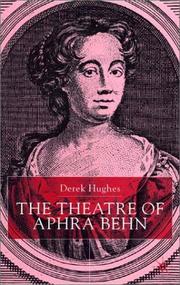
ISBN: 0333760301 Year: 2001 Publisher: Basingstoke : Palgrave,
Abstract | Keywords | Export | Availability | Bookmark
 Loading...
Loading...Choose an application
- Reference Manager
- EndNote
- RefWorks (Direct export to RefWorks)
Feminism and literature --- Women and literature --- History --- History
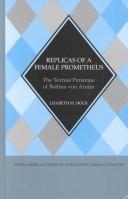
ISBN: 0820449628 Year: 2001 Publisher: New York (N.Y.): Lang
Abstract | Keywords | Export | Availability | Bookmark
 Loading...
Loading...Choose an application
- Reference Manager
- EndNote
- RefWorks (Direct export to RefWorks)
Authors, German --- Feminism and literature --- Arnim, Bettina von,
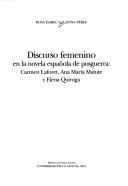
ISBN: 9788477565178 8477565171 Year: 2001 Publisher: La Laguna: Universidad de la Laguna, Servicio de publicaciones,
Abstract | Keywords | Export | Availability | Bookmark
 Loading...
Loading...Choose an application
- Reference Manager
- EndNote
- RefWorks (Direct export to RefWorks)
Spanish fiction --- Spanish fiction --- Women in literature. --- Feminism in literature. --- Feminism and literature
Book
ISBN: 0813031060 9780813031064 Year: 2001 Publisher: Gainesville University Press of Florida
Abstract | Keywords | Export | Availability | Bookmark
 Loading...
Loading...Choose an application
- Reference Manager
- EndNote
- RefWorks (Direct export to RefWorks)
''I am particularly impressed with Bloomberg's insights about the ways in which women writers' urge to harness the power of women's myths has to some extent been aroused by historical forces. . . . She explains that women's desire to reinvent their identities requires that women writers take over the narrative tools (such as mythic allusions) provided them by male writers and use those tools to build their own textual 'house.
Feminist fiction, American --- American fiction --- Feminism and literature --- Literature --- History and criticism. --- Women authors --- History. --- Literature and feminism
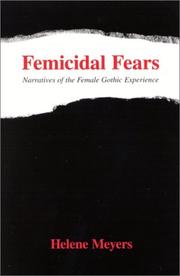
ISBN: 0791451526 Year: 2001 Publisher: Albany (N.Y.) : State university of New York press,
Abstract | Keywords | Export | Availability | Bookmark
 Loading...
Loading...Choose an application
- Reference Manager
- EndNote
- RefWorks (Direct export to RefWorks)
American fiction --- English fiction --- Feminism and literature --- Feminist fiction --- Gothic revival (Literature) --- Horror tales --- Narration (Rhetoric). --- Women and literature --- History and criticism. --- Women authors --- History
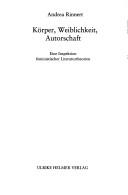
ISBN: 3897410648 Year: 2001 Publisher: Königstein : Helmer,
Abstract | Keywords | Export | Availability | Bookmark
 Loading...
Loading...Choose an application
- Reference Manager
- EndNote
- RefWorks (Direct export to RefWorks)
Feminism and literature. --- Feminist criticism. --- Human body in literature. --- Literature --- Women and literature. --- Women in literature. --- Women authors --- History and criticism.
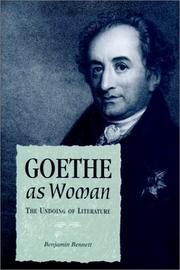
ISBN: 0814329489 9780814329481 Year: 2001 Publisher: Detroit Wayne State University Press
Abstract | Keywords | Export | Availability | Bookmark
 Loading...
Loading...Choose an application
- Reference Manager
- EndNote
- RefWorks (Direct export to RefWorks)
"The most celebrated of German poets, Johann Wolfgang von Goethe is today as much an institution as a writer. This innovative study shows unexpected relations between Goethe the artist and "Goethe" the posthumous tradition, and considers the radical historical metamorphosis of his textual being." "Drawing on a lifetime of reading and reflecting on Goethe, Benjamin Bennett focuses on that writer's own struggle with the idea of reading, and with an understanding of the "wrongness" of literature that opens onto the possibility of woman as a needful destabilizing factor. Bennett shows that even in his early writing Goethe exhibits a highly developed theoretical resistance against both the aesthetic and the national aspects of what was understood as literature in his time, an attitude that would lead him to experiment with gender difference as a means of staking out new literary positions." "Benjamin Bennett is a professor of German at the University of Virginia."--Jacket.
Literature --- Feminism and literature --- Women and literature --- Gender identity in literature. --- Littérature --- Féminisme et littérature. --- Femmes et littérature. --- Identité sexuelle dans la littérature. --- Aesthetics. --- Feminism and literature. --- Literature. --- Women and literature. --- Feminisme. --- Letterkunde. --- Feminismus. --- Psychoanalyse. --- History and criticism --- Theory, etc. --- Histoire et critique --- Théorie, etc. --- Goethe, Johann Wolfgang von, --- Goethe, Johann Wolfgang von. --- Knowledge --- Et la littérature. --- Esthétique. --- Germany.

ISBN: 9780585457499 0585457492 0809323613 9780809323616 0809323621 9780809323623 Year: 2001 Publisher: Carbondale Southern Illinois University Press
Abstract | Keywords | Export | Availability | Bookmark
 Loading...
Loading...Choose an application
- Reference Manager
- EndNote
- RefWorks (Direct export to RefWorks)
Aguiar, focusing on the traits and characteristics of the strong-willed female protagonist, analyzes over one hundred examples in a wide range of literature. Among the characters discussed are Zenia in Margaret Atwood's The Robber Bride, Ruth Patchett in Fay Weldon's The Life and Loves of a She-Devil, Sula in Toni Morrison's Sula, and Ginny in Jane Smiley's A Thousand Acres.
American fiction --- Women in literature. --- English literature --- Women and literature --- Feminism and literature. --- Villains in literature. --- Good and evil in literature. --- Feminism and literature --- Literature --- Woman (Christian theology) in literature --- Women in drama --- Women in poetry --- Evil in literature --- Good in literature --- History and criticism. --- Women authors --- Literature and feminism
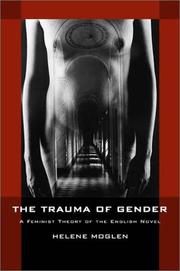
ISBN: 0520925831 159734964X 9780520925830 0520225880 9780520225886 0520225899 9780520225893 0585427941 9780585427942 9781597349642 Year: 2001 Publisher: Berkeley University of California Press
Abstract | Keywords | Export | Availability | Bookmark
 Loading...
Loading...Choose an application
- Reference Manager
- EndNote
- RefWorks (Direct export to RefWorks)
Helene Moglen offers a revisionary feminist argument about the origins, cultural function, and formal structure of the English novel. While most critics and historians have associated the novel's emergence and development with the burgeoning of capitalism and the rise of the middle classes, Moglen contends that the novel princi- pally came into being in order to manage the social and psychological strains of the modern sex-gender system.
English fiction. --- English fiction-- 18th century-- History and criticism. --- Feminism and literature. --- Feminism and literature - Great Britain - History - 18th century. --- Feminist literary criticism. --- Gender identity in literature. --- Sex in literature. --- Sex role in literature. --- Women in literature. --- English fiction --- Feminism and literature --- Feminist fiction, English --- Sex role in literature --- Sex in literature --- Gender identity in literature --- Feminist literary criticism --- Women in literature --- English Literature --- English --- Languages & Literatures --- Literary criticism, Feminist --- Feminist criticism --- Woman (Christian theology) in literature --- Women in drama --- Women in poetry --- English literature --- Literature --- History and criticism --- History --- Male authors --- Women authors --- Male authors&delete& --- Literature and feminism --- History and criticism.

ISBN: 0809323621 Year: 2001 Publisher: Carbondale Southern Illinois University Press
Abstract | Keywords | Export | Availability | Bookmark
 Loading...
Loading...Choose an application
- Reference Manager
- EndNote
- RefWorks (Direct export to RefWorks)
Aguiar, focusing on the traits and characteristics of the strong-willed female protagonist, analyzes over one hundred examples in a wide range of literature. Among the characters discussed are Zenia in Margaret Atwood's The Robber Bride, Ruth Patchett in Fay Weldon's The Life and Loves of a She-Devil, Sula in Toni Morrison's Sula, and Ginny in Jane Smiley's A Thousand Acres.
American fiction --- English literature --- Evil in literature. --- Feminism and literature --- Villains in literature. --- Women and literature --- Women in literature. --- History and criticism. --- Fiction --- Sociology of literature --- Sociology of the family. Sociology of sexuality --- Literature --- Literary criticism --- Images of women --- Book
| Listing 1 - 10 of 31 | << page >> |
Sort by
|

 Search
Search Feedback
Feedback About UniCat
About UniCat  Help
Help News
News